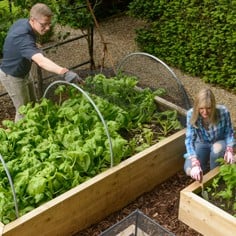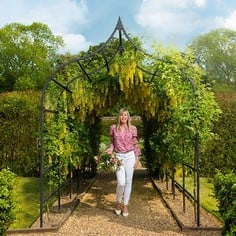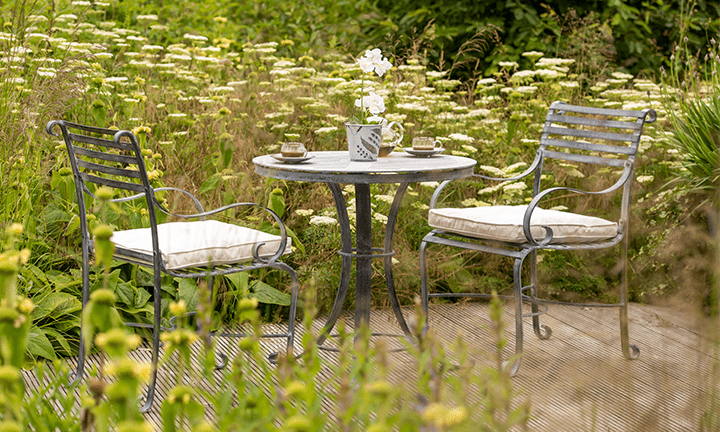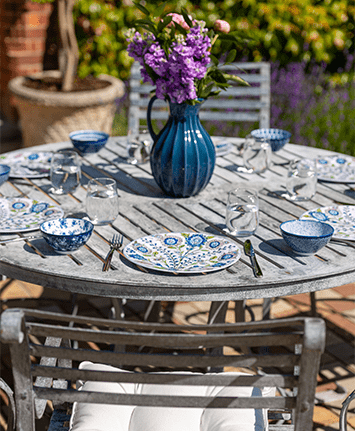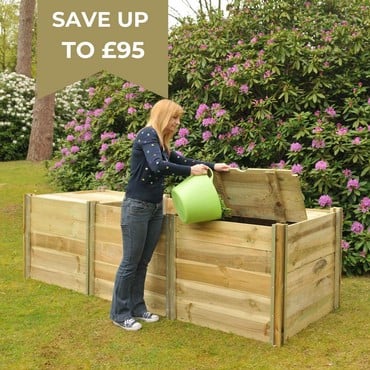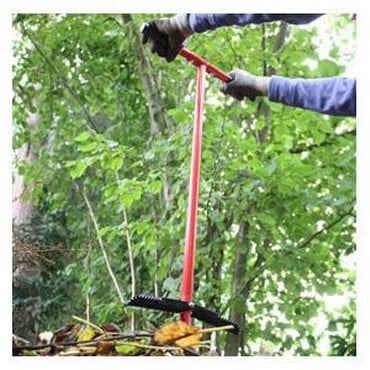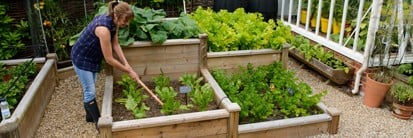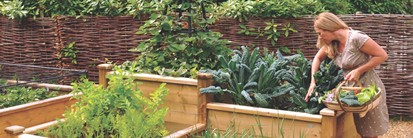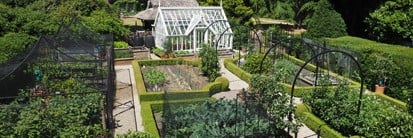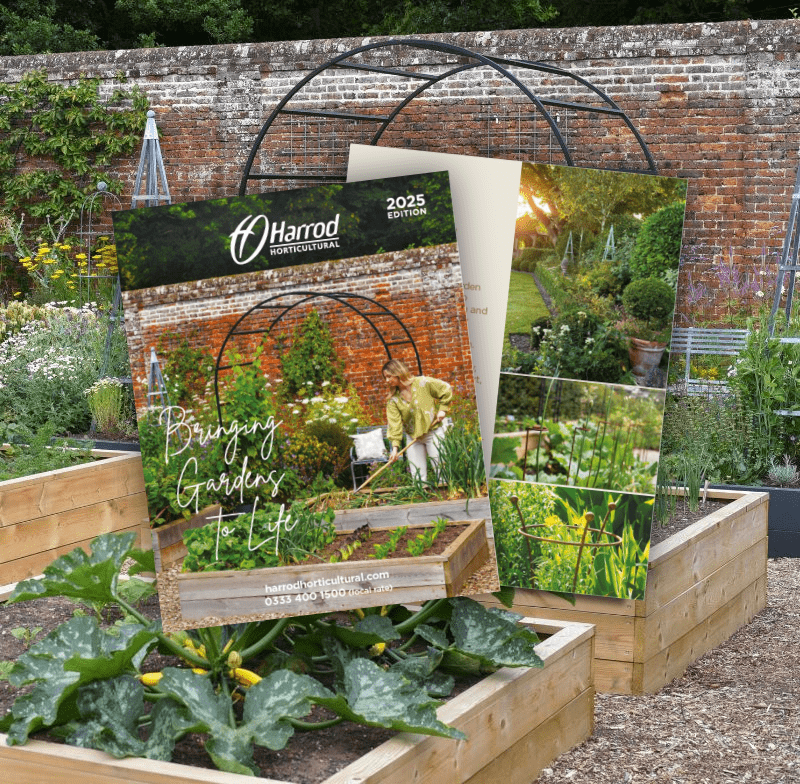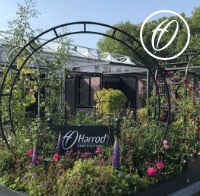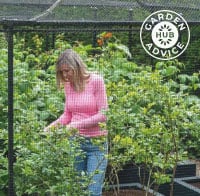Composting kitchen and garden waste is an environmentally friendly source of organic matter that helps to reduce landfill and won’t cost you a penny. The best compost is roughly an equal amount of soft, nitrogen-rich green material (e.g. grass clippings, vegetable waste including tea bags and coffee grains, annual weeds) and carbon-rich brown material (e.g. straw, toilet roll holders, egg boxes, dead leaves, paper (not glossy) and cardboard packaging).
Avoid all meat, fish and cooked food as well as carnivorous animal waste .The composting process requires a balanced supply of water, oxygen and organic matter. Micro-organisms occur naturally in this environment and will generate heat as they break down the organic matter into useable compost.
Oxygen is an important part of the equation and the reason why all good compost benefits from being turned periodically to maintain a supply of air.
If a heap is very wet or the organic matter is too densely compacted, oxygen levels quickly disappear which will not only slow down the composting process but it will fail to reach the high temperatures needed to kill off some weeds, seeds and diseases. When your compost is ready you will have a dark brown, almost black soil like layer at the bottom of your compost bin.

Our large compost bays in the Kitchen Garden are constructed on bare earth which means that worms and bacteria can easily start work. Worms are essential for converting the waste into the best natural fertilizer on the planet…worm cast.
Worms have been conditioning our planet’s soil for millions of years, processing plant waste whilst also aerating the soil.
Indeed Charles Darwin studied worms for many years and concluded that life on earth would not be possible without them!






